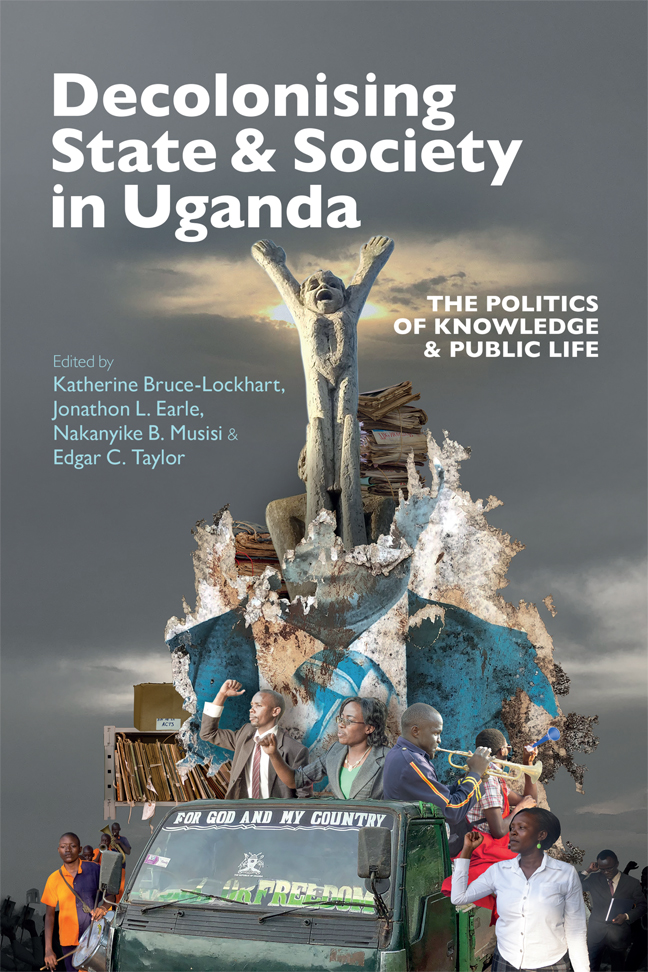Introduction
Published online by Cambridge University Press: 15 February 2024
Summary
Uganda has never been a static entity as its inscription in Map 0.1 suggests. Geographically, its borders have been recurring sources of conflict. British, Belgian, and German officials who sought to demarcate borders through heterogeneous communities frequently provoked hostility to their work and indifference to their creations. Separatist movements from the heart of Buganda to the hills of Bundibugyo have repeatedly challenged Uganda's territorial boundaries. In 1976, Idi Amin asserted that Uganda's borders extended into the plains of northwestern Kenya, and less than three years later his regime collapsed after he attempted to enforce a similar territorial claim on the area north of the Kagera River in Tanzania. Since 2009, the governments of Uganda and Kenya have invoked the imprecise descriptions of colonial cartographers to justify threats of military intervention over the contested island of Migingo. In temporal terms, the origins of the Ugandan nation are vigorously debated among academic historians and popular audiences alike. A recent survey by Richard Reid traces the threads of Ugandan interconnections back many centuries. Other foundational texts in Ugandan historiography emphasise that a weak national project only began in the late 1950s as a faltering Protectorate Government sought to shed responsibility for the divisions it had sown by transferring sovereignty to a centralised African-led state. The violence of colonialism destabilised space and time.
The name ‘Uganda’ itself elicits controversy over the persistence of colonial sovereignty. A corruption of ‘Buganda’ (the kingdom through which British imperialists and their Baganda allies attempted to establish their control over the wider territory), ‘Uganda’ was a cause for concern among many throughout the country in the years before independence. ‘The name “Uganda” [is] a source of continuous annoyance to the non-Baganda people’, John Kamarumba told a constitutional commission in 1959. Two years earlier, the Legislative Councillor and future Vice President John Babiiha set down a motion demanding ‘the Government to consider changing the name of the Protectorate now from Uganda to Kiira, the local name of the River Nile, which is of such great importance to, and is so closely associated with the life of, all the people of the country’.
- Type
- Chapter
- Information
- Decolonising State and Society in UgandaThe Politics of Knowledge and Public Life, pp. 1 - 22Publisher: Boydell & BrewerPrint publication year: 2022



